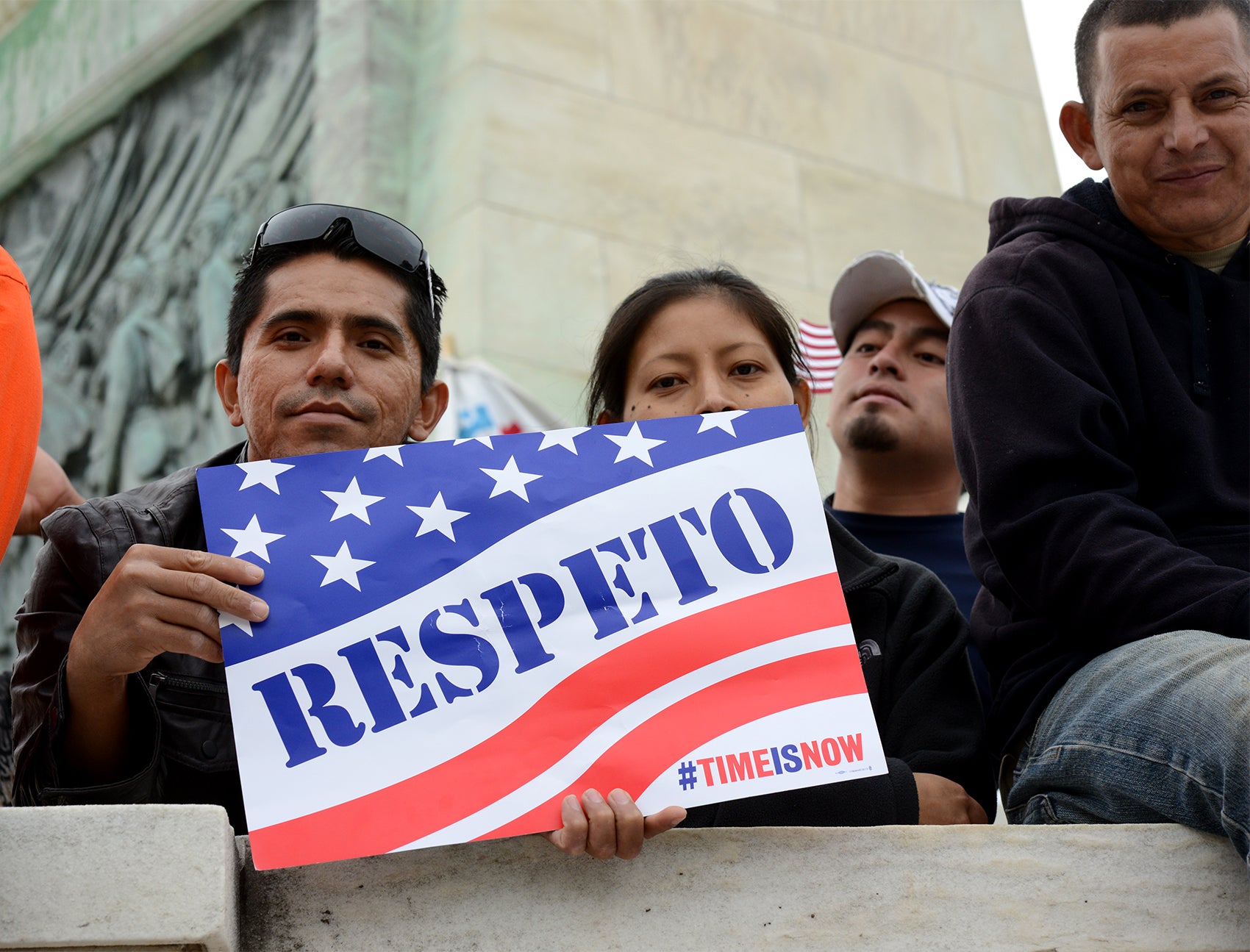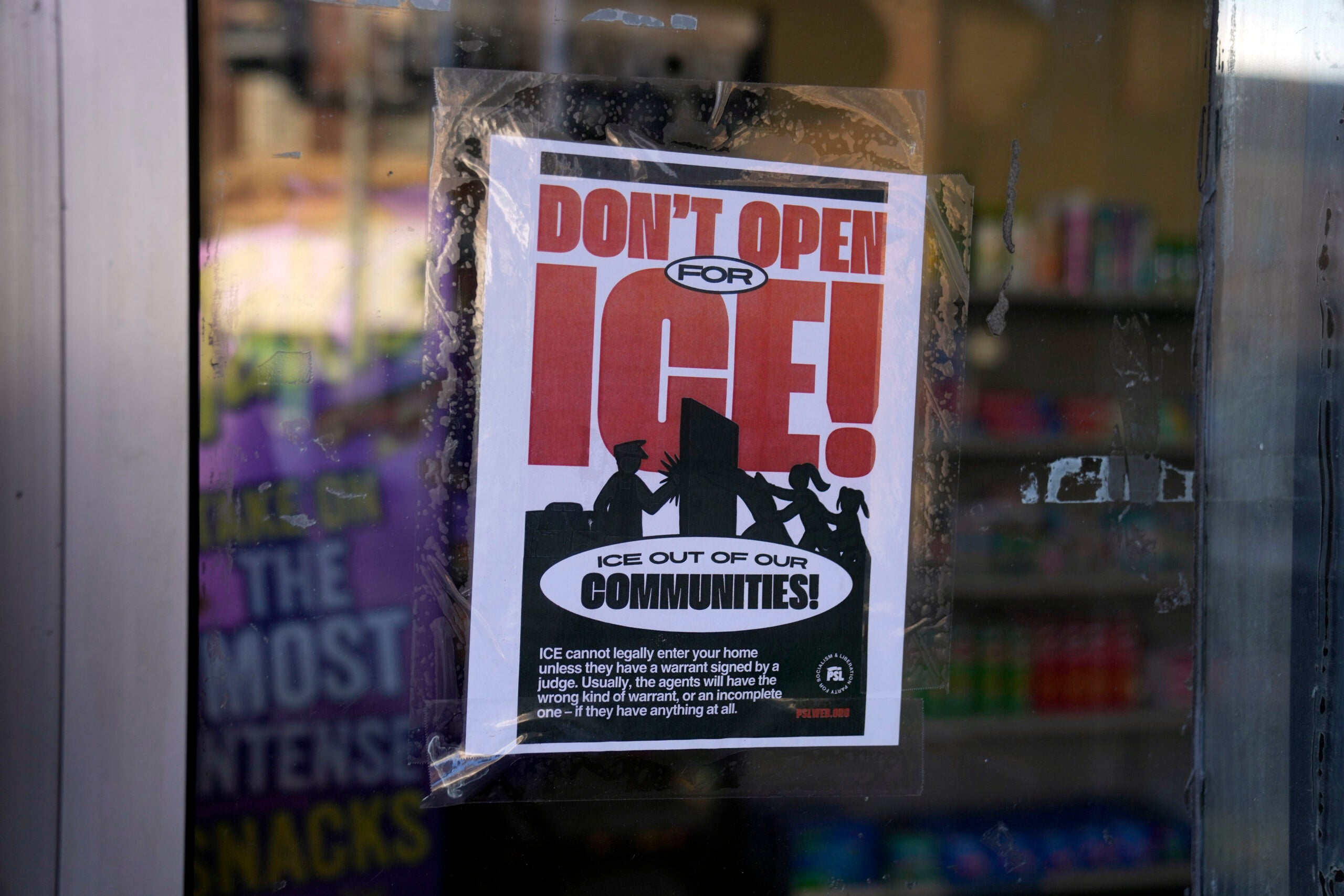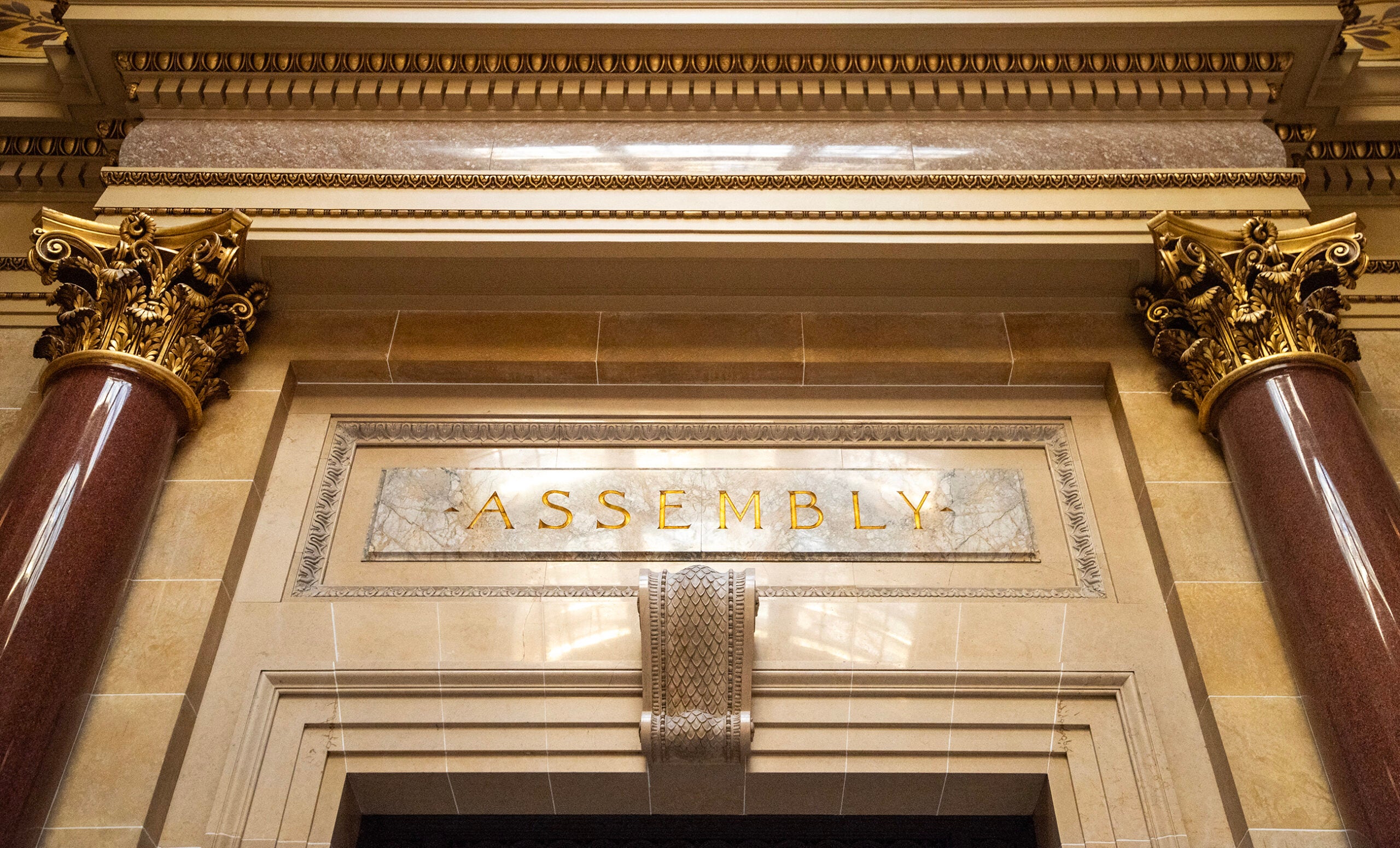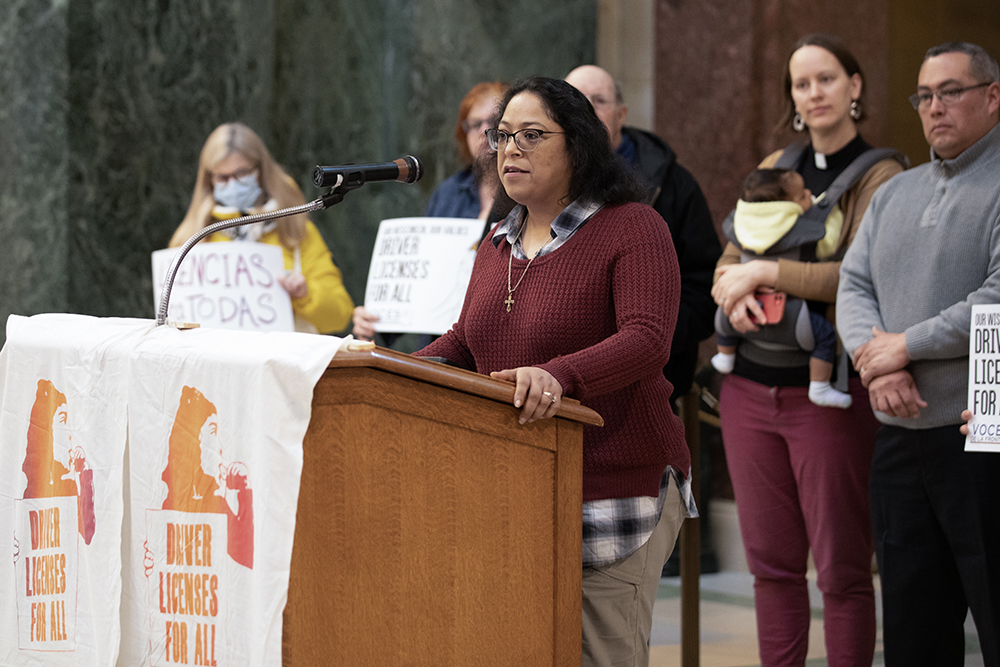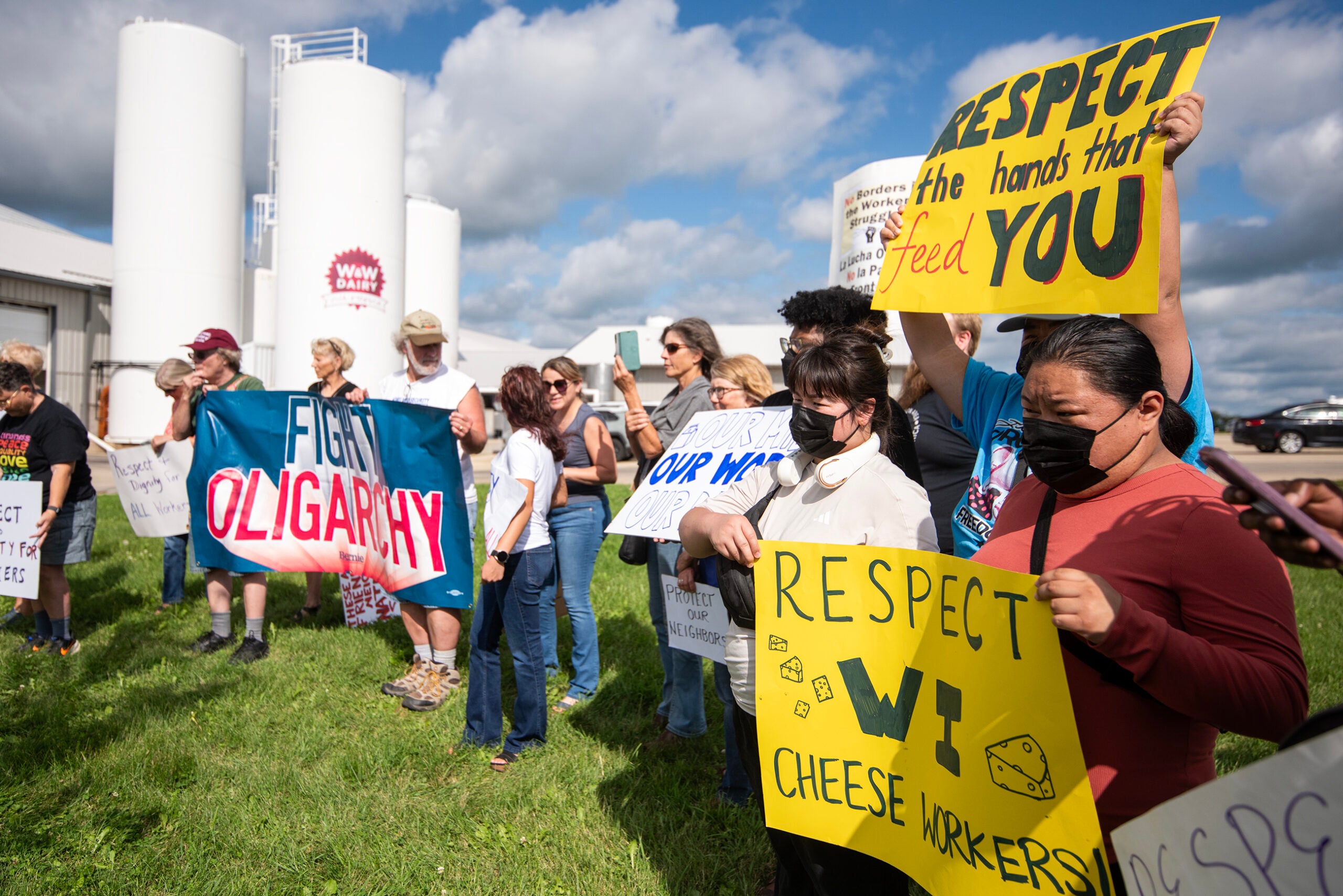In a swing state with a knack for close elections, political organizers are paying attention to Wisconsin’s growing Latino population.
And it’s not just because they’re a growing group. It’s also because of their willingness to change their minds.
“Latinos don’t always neatly fit into the nation’s two-party system,” said Jens Manuel Krogstad at the Pew Research Center. “Even though the political climate in the U.S. is polarized today, fewer than half of Hispanics say there is a great deal of difference between what the Democratic and Republican Parties stand for.”
News with a little more humanity
WPR’s “Wisconsin Today” newsletter keeps you connected to the state you love without feeling overwhelmed. No paywall. No agenda. No corporate filter.
Krogstad and other Pew researchers released findings Friday from a national survey of more than 3,000 Latino adults conducted in early August.
Krogstad said they “found a majority of Latino registered voters said they would not vote for a candidate who disagreed with them on abortion, gun policy, immigration and the economy, even if that candidate agreed with them on most other issues.”
The survey found that 64 percent of the country’s eligible Latino voters identify with or lean toward Democrats, compared with 34 percent for Republicans. Among their top issues are the economy (80 percent), health care (71 percent), violent crime and education (70 percent each).
Yet their diverse views on issues ranging from gun policy to immigration are pushing party operatives to court their votes.
“While Latinos tend to prioritize gun ownership, Hispanic Democrats are a little less likely than Democrats overall to say abortion should be legal in all or most cases,” Krogstad said.
“And yet at the same time,” Krogstad continued, “Latinos, including Latino Republicans, tend to prioritize creating a path to legal status for immigrants who came to the country illegally, which stands in contrast to say Republicans overall who prioritize more border and immigration enforcement.”
Even as they continued to strongly support Democratic candidates, former Republican President Donald Trump made inroads with Latino voters in 2020.
GOP operatives took notice. The Republican National Committee set up community centers on Milwaukee’s south side more than a year ago.
“We see an opportunity here like we’ve seen in states like Florida, Texas, an opportunity to reach out to these voters, share our message one on one with them,” said Preya Samsundar, the Midwest regional communications director for the RNC.
Wisconsin’s midterm elections are some of the most competitive in the country. Republican incumbent U.S. Sen. Ron Johnson is battling Democratic Lt. Gov. Mandela Barnes for a pivotal seat that could alter the balance of power in the U.S. Senate. The gubernatorial race between Democratic Gov. Tony Evers and Republican challenger Tim Michels could become the most expensive in the nation.
Like Republicans, Democratic organizers are on the ground to try to mobilize Latino voters.
“We know in Wisconsin and nationally [the Latino vote] is, as they say, significantly punching below its weight,” said Christine Neumann-Ortiz, executive director of Voces de La Frontera Action.
Neumann-Ortiz pointed to 2020, when Latino turnout dipped. But she said her group has been steadily growing its “relational organizing” efforts with its more than 20,000 members.
“It’s basically just creating a voter network through people you know,” she explained.
The challenge for organizers is that historical trends show Latino voter turnout rates lag behind other racial or ethnic groups, according to Krogstad of Pew Research. He said in the last midterm elections, only about 40% of Hispanics cast a ballot, lower than white and Black eligible voter turnout.
“It’s possible some of this might come down to whether or not Latinos vote in the upcoming elections at all,” he said.
‘All parties should be competing for our vote’
A recent New York Times/Sienna poll found Latino voters this year are more likely to vote Democrat, but there are issues where Republicans see openings.
When Latino voters were asked who they agree with more on the economy, they split 43 percent for Democrats and 41 percent for Republicans.
“The economy, the economy, the economy, are the three most important things,” said the RNC’s Hispanic Communications Director Jaime Florez, adding Latino voters are “fed up with high prices.”
But abortion is also moving up the list of top issues. In the New York Times/Sienna poll, more than half of respondents (52%) said they strongly oppose the Supreme Court’s decision to reverse Roe v. Wade.
And in the Pew Research Center’s survey, nearly 6 in 10 Hispanic registered voters said abortion is very important to their vote, a nearly 20 point increase since last spring.
Neumann-Ortiz of Voces de la Frontera argues other issues are bigger factors for Latinos.
“The driving force, hands-down here in Wisconsin, is immigration rights,” said Neumann-Ortiz. “And I think polls often don’t reflect that.”
Neumann-Ortiz railed against Republican candidates like Michels, who she said is “running on an explicitly anti-immigrant platform,” and Sen. Johnson, who she said “has been blocking reform.” But she also said many Latino voters were frustrated with Democrats for failing to pass a new DREAM Act for undocumented immigrants brought to the U.S. as children.
“The Latino vote is a consistent and growing force that can be a part of this larger, multiracial coalition to defeat the far right and also hold Democrats accountable,” she said.
The RNC’s Florez also cited immigration as a concern for Latino voters, but he blamed Democrats for being weak on border security.
“For many Latinos it’s simply unfair,” he said, given the years and work it takes to get citizenship.
Darryl Morin, president of the group Forward Latino, said economic mobility is the primary issue among Latino families who are working multiple jobs and feel they’re unable to move up into the middle class.
Pew estimates that Wisconsin has roughly 183,000 eligible Latinos voters. Morin said that means Latinos were critical to President Joe Biden’s 2020 Wisconsin victory.
“The argument is there to be made that without the Hispanic vote, the president doesn’t win Wisconsin,” Morin said. “Our numbers are only continuing to grow year after year.”
Morin said his group was focused on voter outreach as the 2022 election approaches, adding that Forward Latino is launching a civic engagement program this month to help register eligible voters.
“All parties should be competing for our vote,” he said.
Wisconsin Public Radio, © Copyright 2026, Board of Regents of the University of Wisconsin System and Wisconsin Educational Communications Board.

